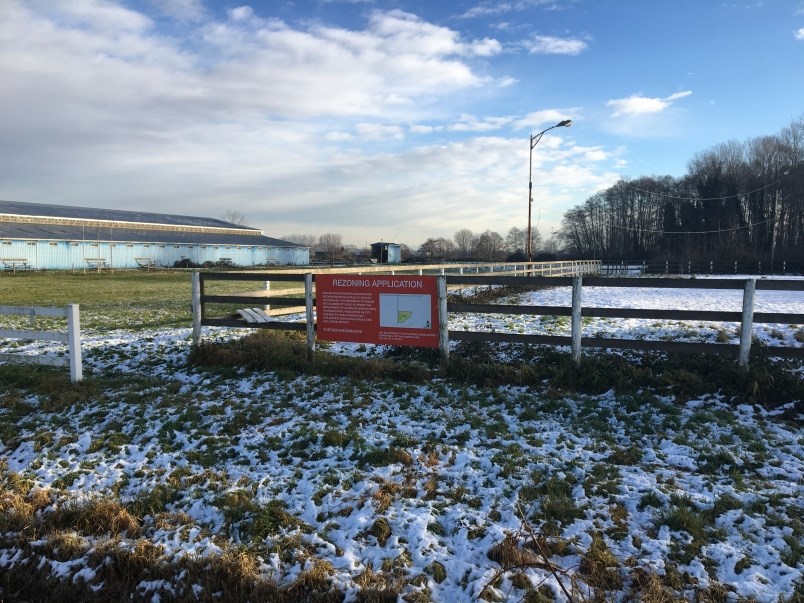A landowner has petitioned the Supreme Court of B.C., after fighting a 19-month battle with the City of Richmond to build a greenhouse for cannabis production.
Linda English filed the petition last week, claiming the city’s planning department twice refused building permits for her to grow cannabis at the site of the Riverside Equestrian Centre, which English owns and operates on Garden City Road, close to the Fraser River’s south arm.
In the petition, English said city staff had no legal right to refuse her applications, which she has been trying to get approved since May 2018.
Her initial attempt involved converting the farm building used for her equestrian centre into a medical cannabis production facility on her Agricultural Land Reserve (ALR) property.
The city’s subsequent denial of the building permit was, according to the petition, due to a municipal zoning bylaw not allowing the “cultivation of cannabis.”
However, English’s lawyer replied to the denial, telling the city its actions “appeared to be unlawful” because the Agricultural Land Commission (ALC) allows the production of medicinal cannabis on the ALR.
The lawyer also pointed out that the same regulations specifically state that local governments cannot prohibit such production without provincial approval.
Five months later, in November 2018, the city wrote back to English, telling her she would need to submit a new application, complying with recent amendments to the ALR cannabis-growing rules.
And in May 2019, English ditched the plan to convert the equestrian centre building and did, indeed, file a new building permit application.
This time, she sought permission to construct a greenhouse over an entirely soil-based cannabis-growing operation, as per the new provincial rules.
All appeared to be going to plan with the permitting process, until more delays started to creep in, including the city’s assertion that a Metro Vancouver air quality permit was needed.
More emails swung back and forth until September, when city council, as per a city staff report, amended its own zoning bylaw, allowing cannabis-growing operations on ALR land, as long as there were 30-metre setbacks.
None of those details, according to the petition, had been communicated to English’s lawyer during the mammoth email exchanges.
Later that month, in yet another email from a city planning manager, English was then asked to clarify what her cannabis would be used for – medicinal or non-medicinal.
And about five days after English’s lawyer told the city that “end uses of cannabis” are not determined by the grower, the city’s planning department once again refused the permit.
According to the petition, the city refused the application on the grounds that a municipal zoning bylaw “doesn’t permit the cultivation of non-medicinal cannabis inside buildings constructed after July 13, 2018.”
However, English’s petition states that a building inspector “must issue the building permit if he/she is satisfied the proposed construction will comply with the building code.”
The petition also refers to a precedent set in court in 2018, whereby it was determined that the City of Richmond’s zoning bylaw had no power over preventing the legal production of cannabis on the ALR.
It further states that the city’s decision to deny the building permit is “unlawful, unreasonable or made in bad faith.”
The petition, therefore, demands that the city issue the building permit to English.
The city has yet to file a response to the petition. It has 21 days upon being served to respond.
In 2017, an application to grow cannabis at the same location was submitted to the city by Mallen Gowing Berzins Architecture Inc.
It’s not clear what connection, if any, English had to that application.



